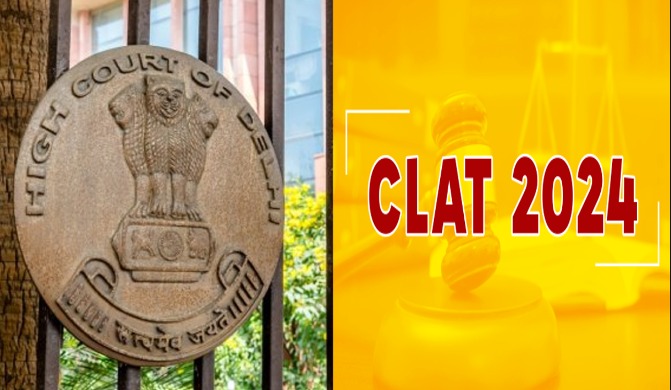
The Delhi High Court on Wednesday issued notice to the Consortium of National Law Universities (NLU) and the Bar Council of India (BCI) on a petition demanding that the Common Law Admission Test for the year 2024 (CLAT 2024) be conducted in all regional languages listed in the Constitution’s eighth schedule.
A division bench of Chief Judge Satish Chandra Sharma and Justice Subramonium Prasad ordered the authorities four weeks to respond to the plea.
On May 19, the matter will be heard again.
CLAT is currently only conducted in English. According to the petition, this poses gross unfairness to students from non-English medium.
“CLAT discriminates against and fails to level the playing field for students with educational backgrounds rooted in regional languages. They are linguistically disempowered in a hyper-competitive paper because they must overcome the extra obstacle of acquiring and mastering a foreign language,” the plea stated.
It added, “Aspirants who attend English-medium schools have an edge over their classmates who attend Hindi or other vernacular language schools. The disadvantaged and disempowered aspirants can never see an exam primarily based in English as ‘obvious’ unlike their affluent, English-speaking opponents.”
The petition, filed by a Delhi University law student Sudhanshu Pathak, referenced a survey by the Improving Diversity by Increasing Access to legal education (IDIA) Trust.
According to the poll, more than 95% of surveyed students studying at National Law Universities (NLUs) came from schools where English was the language of instruction at both the secondary and higher secondary levels.
The petition argued that this was not surprising considering that CLAT is an admission examination that requires a high level of English proficiency, which is a symbol of privilege and so offers an inherent advantage to students from an English medium background.
“This figure has been more or less consistent with the results of the 2013-14 survey, in which 96.77% of the surveyed students came from English medium backgrounds, indicating that proficiency in the English language remains a major factor for gaining admission to a top NLU in the country,” the petitioner stated.




